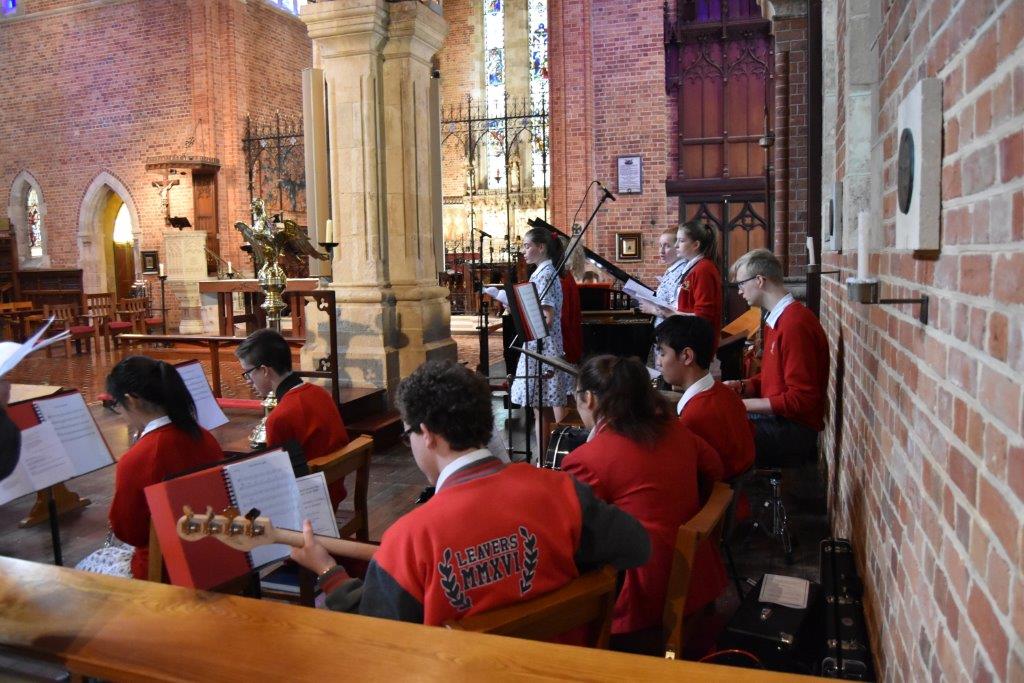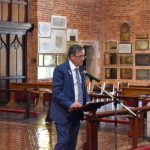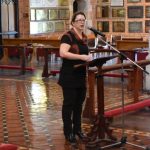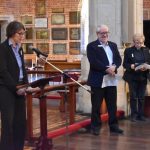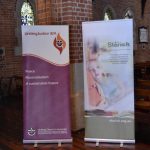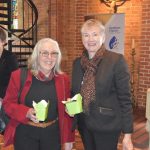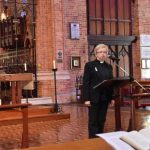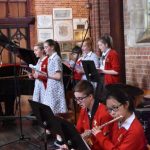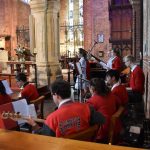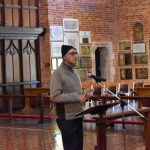It is currently Anti-Poverty Week across Australia. Running from Sunday 16 October to Saturday 22 October events will be held all over the country to raise awareness of poverty and its causes in our nation.
In Western Australia an Ecumenical Anti-Poverty Week Worship Service was held this afternoon, Wednesday 19 October, at St George’s Cathedral in the Perth CBD. The service focussed on domestic violence as a contributing factor to poverty in Australia.
The service was hosted by the Anglican Social Responsibilities Commission and supported by a number of ecumenical organisations including the Uniting Church WA. After a welcome to country from Indigenous Elder Ben Taylor there were two talks on domestic violence and its causational relationship with poverty.
Basil Hannah, chief executive of Parkerville Children and Youth Care, spoke about the effects of domestic violence on children that oftentimes result in living in poverty. He expressed that children affected by trauma have long term consequences. The physical, mental and emotional damage done can result in serious health issues, often misdiagnosed.
“Children affected by trauma are often misunderstood” and this often exacerbates the issues the children face. More than 600,000 children in Australia live below the poverty line. Basil asked “Where is the ongoing outrage?” Basil said.
The plight of children and youth affected has, until recent years, been largely obscure in the public eye. Basil explained that the Valuing Children Initiative was established to advocate for children’s rights and needs. He referred to the ‘Valuing Children Initiative Benchmark Survey: 2016’ which found that out of 10 possible options Australians ranked ‘Looking after the interests of children’ in ninth place.
The second talk was from Tori Cooke, Family and Domestic Violence Consultant at Anglicare WA.
Tori began by stating “Coercive control is a dynamic of entrapment that is family and domestic violence.”
Family violence includes a number of dynamic and varied process that don’t always look, to outsiders, like domestic violence. In a single year WA police responded to more than 40 000 calls for help in domestic and family violence situations.
“The impact of [family violence] includes shame, confusion and self-doubt, but mostly fear and anxiety. She (the woman affected by family violence) knows that people around her judge her provoking him, for not leaving. What they don’t know is the lived reality of things getting worse,” Tori explained.
“We know that nearly fifty per cent of women killed by their partners have been killed when they leave. Judgement without knowledge can be crippling in community attitudes about family violence,” she said.
“Addressing the poverty found in family violence is our choice and our imperative. We have a role to play in the interruption of the abuser attitudes. We must begin to notice his beliefs and attitudes that support violent or abusive actions. Our call to action is to interrupt whenever and wherever we see attitudes of disrespect. For we cannot stop the violence unless we actively interrupt the poverty that supports it.”
Anti-poverty week events will be held all around Australia, for more information go to http://www.antipovertyweek.org.au/.
For more information about the Valuing Children Initiative go to http://valuingchildreninitiative.com.au/.
For information about Anglicare WA’s domestic violence and support services visit https://www.anglicarewa.org.au/relationships/domestic-violence/domestic-violence-advocacy-and-support-service.aspx.
To learn more about Parkerville Children and Youth Care go to http://parkerville.org.au/.
Elaenor Nield
Top image: Students from St George’s College performed at the Ecumenical Anti-Poverty Week Worship Service.
